Artificial intelligence (AI) is affecting how travel and hospitality businesses work. There is tough competition in the hospitality industry. Therefore, businesses are changing how they use the latest technologies. Instead of basic automated systems like chatbots, they’re now using smarter AI solutions.
With AI and advanced tools for analyzing data, hotels, and travel companies can now offer more personalized services and give guests better experiences.
These AI business solutions can handle more information about guests’ preferences and behaviors. They can also talk to guests more naturally, making their stay better. And the best part is that they continuously improve with interaction, providing an advantage to early adopters.
What is AI?
Artificial intelligence, commonly referred to as AI, is an innovation that permits devices to think and respond like humans. It can work alone or complement other technologies, like sensors or robots, to do assignments with minimum human assistance.
GPS, self-driving cars, and ChatGPT are also the uses of AI that are ruling the current world.
AI incorporates machine learning and deep learning. These together make devices more powerful by enabling them to learn from the data and yield better results.
Although AI has been around for a long time, presently, with advanced ChatGPT integration services, it is transforming every industry. It can now understand human language, understand commands, and give the required results.
AI can also generate content, pictures, recordings, and even computer code.
The use of AI is increasing each day. The hospitality industry has also not remained untouched by its transformative power, as businesses are now using it to deliver better customer experiences.
Stats:
AI will double the annual economy to $1 trillion by 2035. It could replace up to 800 million jobs, but he also says AI will create new jobs. – Accenture 58% of guests believe artificial intelligence can improve hotel bookings and stay experiences.
AI Use Cases in Hospitality
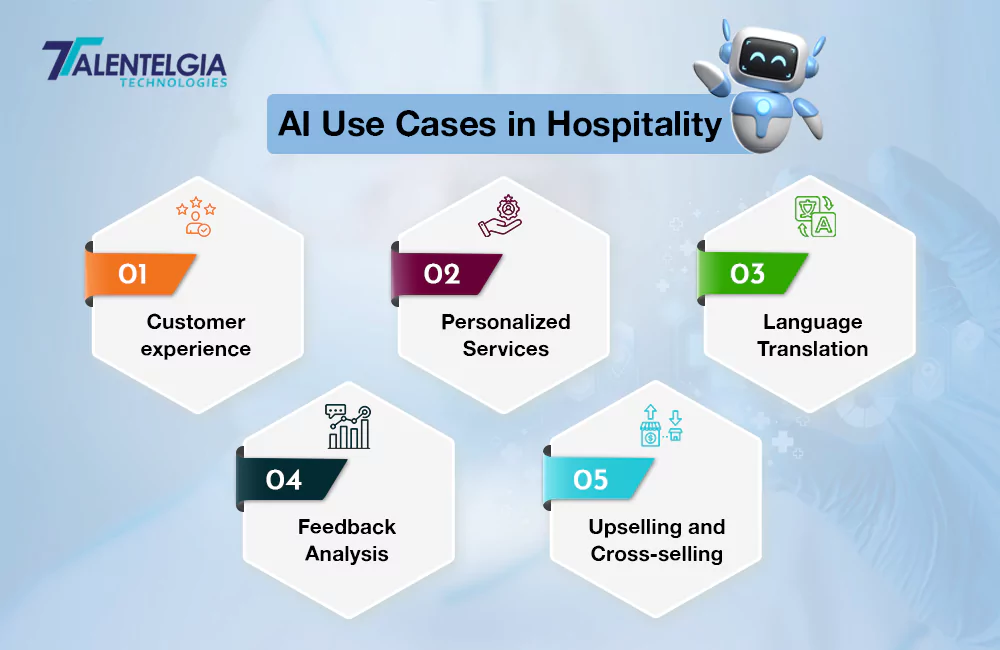
The hospitality industry includes hotels, resorts, eateries, and travel agencies. This industry often faces challenges when it comes to keeping up with the desires of modern users. With online booking, social media, and surveys, they need more personalized, smooth, intuitive, and enhanced benefits.
AI can improve guest services by making operations run better and keeping data safe.
Virtual assistants and chatbots can take over repetitive email tasks to do routine jobs automatically and use voice commands to control room features easily.
Also, AI can help with setting prices to make more money, predict when things might break to fix them, and give useful advice based on data. Let’s look at some of the uses of AI in hospitality industry that are helping businesses.
Here are the top 10 AI use cases in the hospitality industry.
Customer Experience
Chatbots have become one of the leading applications of AI. They are used a lot on hotel websites and applications to help guests and make them happy.
These smart solutions can answer questions, book rooms, and give information about the hotel. They’re available round the clock and answer quickly, which makes guests happy and reduces the work for the team.
These not only reduce the wait time but also build trust in your brand as you are available 24*7 to respond to their queries.
Personalized Services
Virtual assistants use AI to give guests special experiences. They are used in smart speakers or apps that can tell guests about nearby places, suggest restaurants, plan personalized schedules, and even control room lights or temperatures.
It has been found that users like it when they get access to advanced interactive technology. So these assistants make guests happier by giving them a luxurious and more comfortable experience.
Language Translation
Chatbots and virtual assistants can translate languages easily. So guests and staff can interact smoothly even if they speak different languages. This makes communication easy and makes guests feel more comfortable.
This not only helps them be open to global tourism but also makes sure that you are well-equipped to cater to your guests by overcoming language barriers. When users can communicate in their native languages and get things done, it offers them a friendly atmosphere, and they are more likely to return.
Feedback Analysis
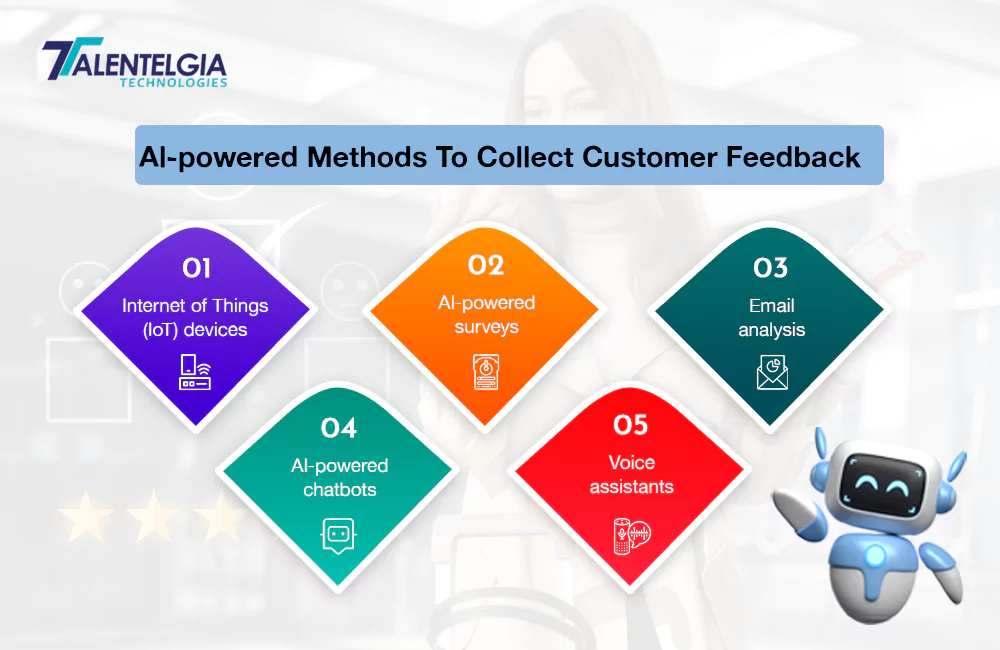
The AI-generated chatbots transform the experience of collecting guest reviews. They use natural language processing, along with sentiment analysis, to detect guests’ emotions and satisfaction levels.
By understanding guests’ opinions, it is easy to understand how to deliver services that keep up with the demands and preferences of their customers.
Furthermore, the instant feedback loop means that hotels receive information about problems and mistakes as soon as they arise and can take rapid action to prevent any damage to overall guest satisfaction and loyalty.
Upselling and Cross-selling
Bots and virtual agents used in these instances are suitable for upselling and cross-selling extra services or upgrades to hotel guests. By analyzing guest habits, history, and market trends, AI-powered systems easily recommend solutions that align with guest interests.
Besides increasing hotel revenue through upselling, it offers a personalized and tailored service to the guests to improve their experience and satisfaction.
Furthermore, the application of the targeted two-way techniques of up-selling and cross-selling helps hotels improve sales while simultaneously keeping guests happy and loyal.
Streamlining Operations
AI-powered assistants simplify hotel operations with their ability to perform repetitive processes faster, giving instant services to guests. The virtual concierges can handle inquiries, manage bookings, and provide information about room details, allowing human staff to focus more on complex service-related queries.
The AI-powered assistants will accomplish repetitive tasks. This increases productivity, reduces costs, and offers a smoother guest experience. Another perk of AI-powered help is its ease of accessibility to guests, who get 24/7 support.
User Behavior Analysis
AI-based analytics enables hotels to analyze data and track user behavior to develop targeted strategies.
This ability to assess customers, booking schedules, and market trends provides a way to make recommendations that are meant to improve operations and profits.
AI can predict peak demand periods and schedule payments to provide a unique experience to their guests.
Pricing Structure
AI-based pricing using a data-driven algorithm gives the possibility of determining the most advantageous market rates for rooms.
Based on historical booking patterns, analysis of demand curves, competitor’s pricing analysis, and guest preferences, AI can adjust room rates, which may help the company maximize its revenue and occupancy level.
AI-based pricing tactics also contribute to the ability to undertake actions quickly in response to fluctuations in market conditions and travelers’ tastes.
As a result, the industry maintains its competitiveness and maximizes its profitability in a fast-moving hospitality environment.
Personalized Deals
AI provides hotels with the ability to offer special prices and personalized deals that are customized according to guest ratings and behaviors. Through the use of data analytic models and machine learning algorithms, hotels can categorize guests based on their online booking history, preferences, and spending habits, offering them custom options that can vastly improve their sales.
Such a customized approach to pricing gives a pleasant experience to the guests by providing a personalized offer that maximizes bookings and gains their loyalty.
This will also help hotels build long-term relationships and drive repeat business to maximize revenue and profitability.
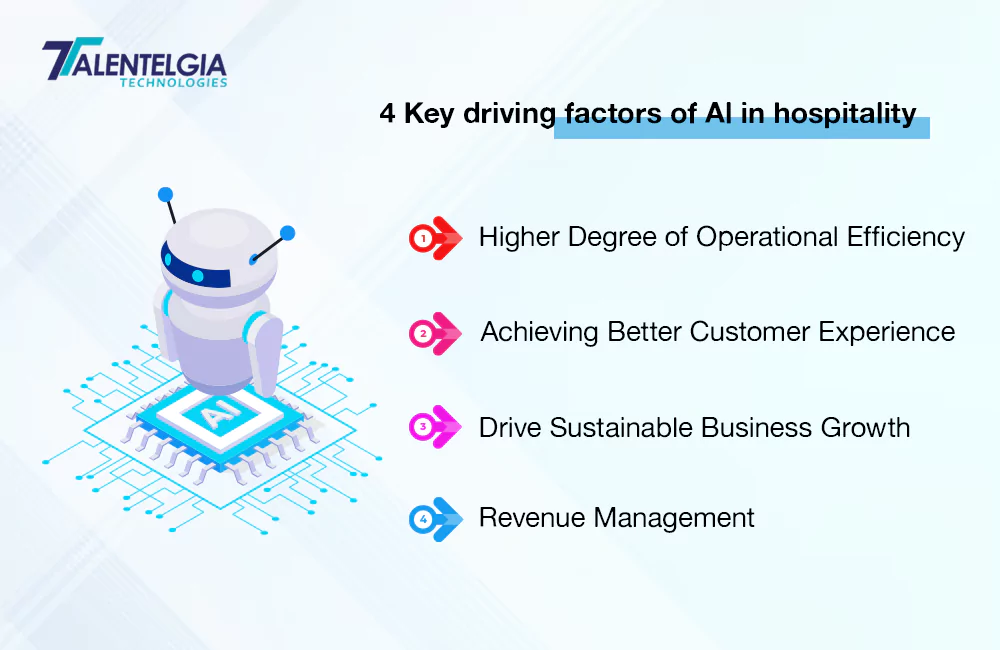
Also Read: AI Use Cases In Healthcare
The Future of AI in Hospitality
Artificial intelligence (AI) is revolutionizing the hospitality sector with its unique inventions and advanced AI integration services. Modern technologies like robotics deeply affect the hospitality industry in hotels, resorts, and other related businesses.
Artificial intelligence remains an opportunity for hotels to compete in the industry by improving the guest experience. Here’s how AI is transforming hospitality.
Enhanced Guest Experience
Hotels are using AI to make guests feel special, starting from the moment they check in until they say goodbye. For instance, Hilton has Connie, a virtual helper powered by IBM Watson, who gives guests tips about hotel staff, dining options, and cool things nearby.
AI is also changing how guests experience their rooms. It lets guests control the lights, temperature, and TV with their voices. This not only makes things easier but also ensures that each guest gets a room set up just the way they like it.
Better Customer Services
Customer service in hotels has gotten a lot better with AI. Chatbots on hotel websites and social media are always there to answer guest questions, making booking a room easier for the users.
Also, AI helps hotels understand what guests are looking for by looking at online reviews and surveys, helping them to deliver better services.
User Focus
In marketing, AI makes it easier to focus on users while strategizing your business plans. By looking at guest information, AI can make custom ads and offers.
Leading hotels are now using AI to look at what guests like and have done before to send them offers and ideas they’ll love, making them more likely to come back. Moreover, AI also helps hotels understand what’s popular and what guests want, so they can make better plans and ads.
Challenges of AI in Hospitality Industry
As technology continues to change every industry, the hospitality industry is also transforming with the emergence of artificial intelligence (AI). From improving the guest experience to smooth operations, AI promises to redefine how businesses serve their customers.
However, while the integration of artificial intelligence holds great promise for the hospitality industry, it also presents unique challenges.
Let us look at the challenges and difficulties that hotels and resorts face at the beginning of their AI journey. From data privacy issues to employee performance, understanding and solving these issues is essential for achieving excellence.
Cost Management
Using AI can sometimes become a tough choice for small businesses. AI solutions are costly and also demand efficient handling.
Moreover, businesses may also have to invest time and resources in training their teams. That is why finding the correct balance between the costs and the benefits of AI in the long run is necessary. So if you are also wondering if they are the right choice for your business, always consider if these solutions are worth it in the long run.
Data Security
For tech-savvy hotel owners, putting AI into their current systems might be tricky. Many hotels use older systems that don’t work well with new AI technology. This can disrupt operations, reducing the effectiveness of AI and causing inconvenience for both staff and guests.
AI works by collecting and analyzing data about guests, which can make some people worried about their privacy. So when hiring an AI development company for your businesses, make sure they prioritize data security.
Conclusion
AI is making an undeniable impact in the hospitality industry, changing how guests are treated, operations run, and management works. Both big and small businesses are now acknowledging its transformative power to yield better results for their ventures. However, even though AI is helping businesses grow, users still prefer human assistance for certain processes. So, if you are also wondering about the uses of AI in hospitality industry, the information shared above will help you make the right call. Dealing with these challenges carefully is the key to making AI work for your business growth.


 Healthcare App Development Services
Healthcare App Development Services
 Real Estate Web Development Services
Real Estate Web Development Services
 E-Commerce App Development Services
E-Commerce App Development Services E-Commerce Web Development Services
E-Commerce Web Development Services Blockchain E-commerce Development Company
Blockchain E-commerce Development Company
 Fintech App Development Services
Fintech App Development Services Fintech Web Development
Fintech Web Development Blockchain Fintech Development Company
Blockchain Fintech Development Company
 E-Learning App Development Services
E-Learning App Development Services
 Restaurant App Development Company
Restaurant App Development Company
 Mobile Game Development Company
Mobile Game Development Company
 Travel App Development Company
Travel App Development Company
 Automotive Web Design
Automotive Web Design
 AI Traffic Management System
AI Traffic Management System
 AI Inventory Management Software
AI Inventory Management Software
 AI Software Development
AI Software Development  AI Development Company
AI Development Company  AI App Development Services
AI App Development Services  ChatGPT integration services
ChatGPT integration services  AI Integration Services
AI Integration Services  Generative AI Development Services
Generative AI Development Services  Natural Language Processing Company
Natural Language Processing Company Machine Learning Development
Machine Learning Development  Machine learning consulting services
Machine learning consulting services  Blockchain Development
Blockchain Development  Blockchain Software Development
Blockchain Software Development  Smart Contract Development Company
Smart Contract Development Company  NFT Marketplace Development Services
NFT Marketplace Development Services  Asset Tokenization Company
Asset Tokenization Company DeFi Wallet Development Company
DeFi Wallet Development Company Mobile App Development
Mobile App Development  IOS App Development
IOS App Development  Android App Development
Android App Development  Cross-Platform App Development
Cross-Platform App Development  Augmented Reality (AR) App Development
Augmented Reality (AR) App Development  Virtual Reality (VR) App Development
Virtual Reality (VR) App Development  Web App Development
Web App Development  SaaS App Development
SaaS App Development Flutter
Flutter  React Native
React Native  Swift (IOS)
Swift (IOS)  Kotlin (Android)
Kotlin (Android)  Mean Stack Development
Mean Stack Development  AngularJS Development
AngularJS Development  MongoDB Development
MongoDB Development  Nodejs Development
Nodejs Development  Database Development
Database Development Ruby on Rails Development
Ruby on Rails Development Expressjs Development
Expressjs Development  Full Stack Development
Full Stack Development  Web Development Services
Web Development Services  Laravel Development
Laravel Development  LAMP Development
LAMP Development  Custom PHP Development
Custom PHP Development  .Net Development
.Net Development  User Experience Design Services
User Experience Design Services  User Interface Design Services
User Interface Design Services  Automated Testing
Automated Testing  Manual Testing
Manual Testing  Digital Marketing Services
Digital Marketing Services 
 Ride-Sharing And Taxi Services
Ride-Sharing And Taxi Services Food Delivery Services
Food Delivery Services Grocery Delivery Services
Grocery Delivery Services Transportation And Logistics
Transportation And Logistics Car Wash App
Car Wash App Home Services App
Home Services App ERP Development Services
ERP Development Services CMS Development Services
CMS Development Services LMS Development
LMS Development CRM Development
CRM Development DevOps Development Services
DevOps Development Services AI Business Solutions
AI Business Solutions AI Cloud Solutions
AI Cloud Solutions AI Chatbot Development
AI Chatbot Development API Development
API Development Blockchain Product Development
Blockchain Product Development Cryptocurrency Wallet Development
Cryptocurrency Wallet Development About Talentelgia
About Talentelgia  Our Team
Our Team  Our Culture
Our Culture 
 Healthcare App Development Services
Healthcare App Development Services Real Estate Web Development Services
Real Estate Web Development Services E-Commerce App Development Services
E-Commerce App Development Services E-Commerce Web Development Services
E-Commerce Web Development Services Blockchain E-commerce
Development Company
Blockchain E-commerce
Development Company Fintech App Development Services
Fintech App Development Services Finance Web Development
Finance Web Development Blockchain Fintech
Development Company
Blockchain Fintech
Development Company E-Learning App Development Services
E-Learning App Development Services Restaurant App Development Company
Restaurant App Development Company Mobile Game Development Company
Mobile Game Development Company Travel App Development Company
Travel App Development Company Automotive Web Design
Automotive Web Design AI Traffic Management System
AI Traffic Management System AI Inventory Management Software
AI Inventory Management Software AI Software Development
AI Software Development AI Development Company
AI Development Company ChatGPT integration services
ChatGPT integration services AI Integration Services
AI Integration Services Machine Learning Development
Machine Learning Development Machine learning consulting services
Machine learning consulting services Blockchain Development
Blockchain Development Blockchain Software Development
Blockchain Software Development Smart contract development company
Smart contract development company NFT marketplace development services
NFT marketplace development services IOS App Development
IOS App Development Android App Development
Android App Development Cross-Platform App Development
Cross-Platform App Development Augmented Reality (AR) App
Development
Augmented Reality (AR) App
Development Virtual Reality (VR) App Development
Virtual Reality (VR) App Development Web App Development
Web App Development Flutter
Flutter React
Native
React
Native Swift
(IOS)
Swift
(IOS) Kotlin (Android)
Kotlin (Android) MEAN Stack Development
MEAN Stack Development AngularJS Development
AngularJS Development MongoDB Development
MongoDB Development Nodejs Development
Nodejs Development Database development services
Database development services Ruby on Rails Development services
Ruby on Rails Development services Expressjs Development
Expressjs Development Full Stack Development
Full Stack Development Web Development Services
Web Development Services Laravel Development
Laravel Development LAMP
Development
LAMP
Development Custom PHP Development
Custom PHP Development User Experience Design Services
User Experience Design Services User Interface Design Services
User Interface Design Services Automated Testing
Automated Testing Manual
Testing
Manual
Testing About Talentelgia
About Talentelgia Our Team
Our Team Our Culture
Our Culture
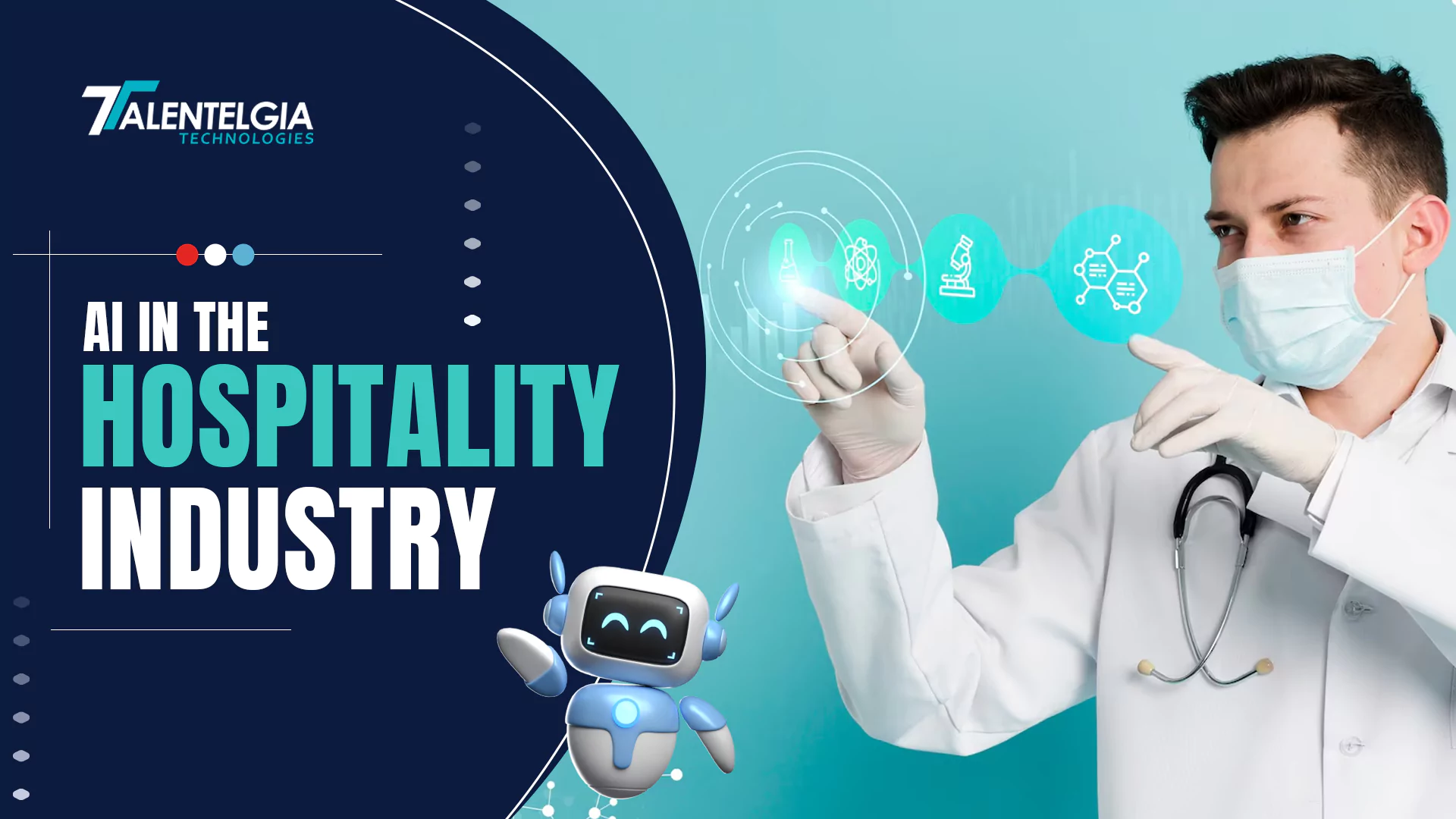

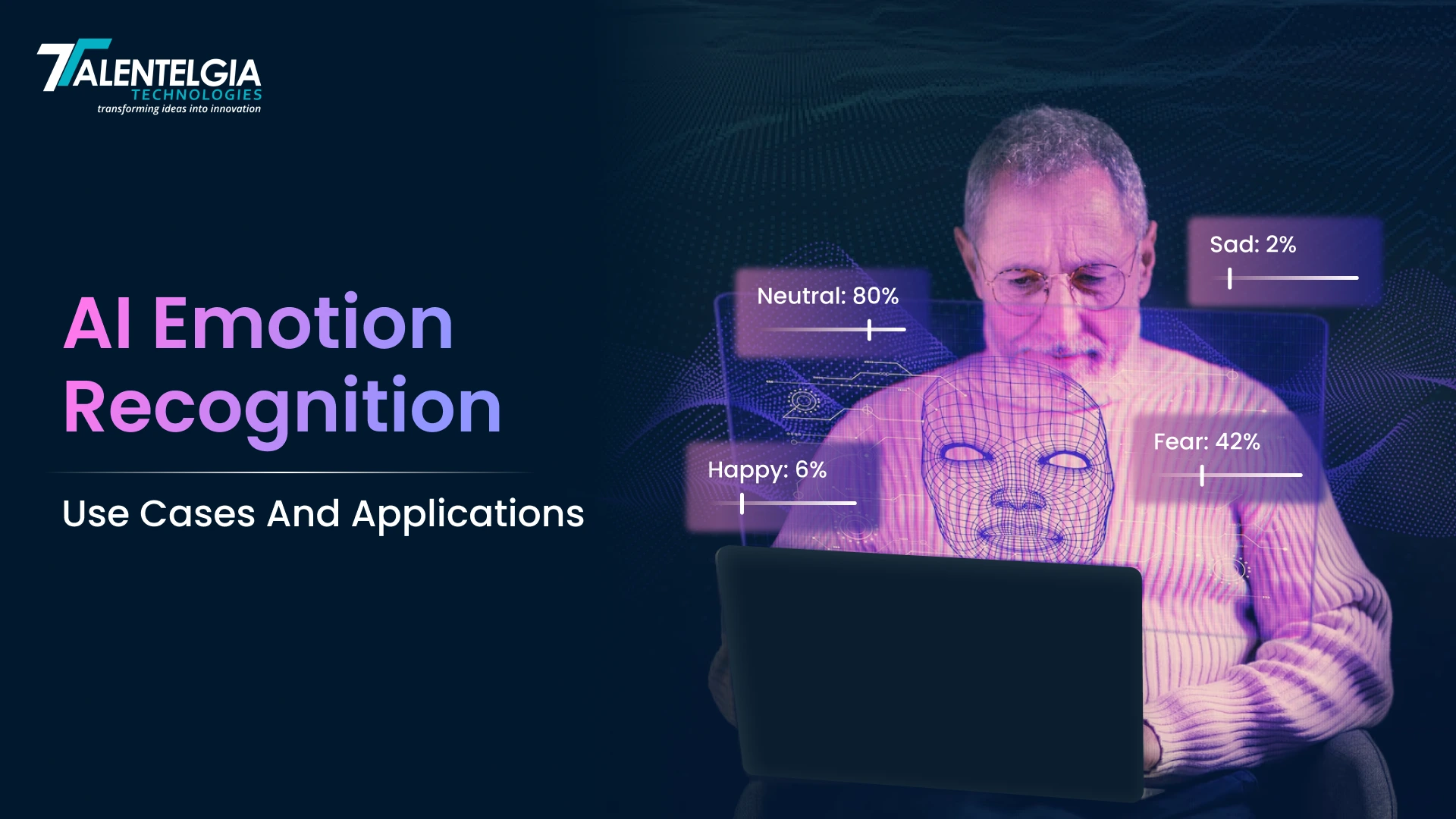

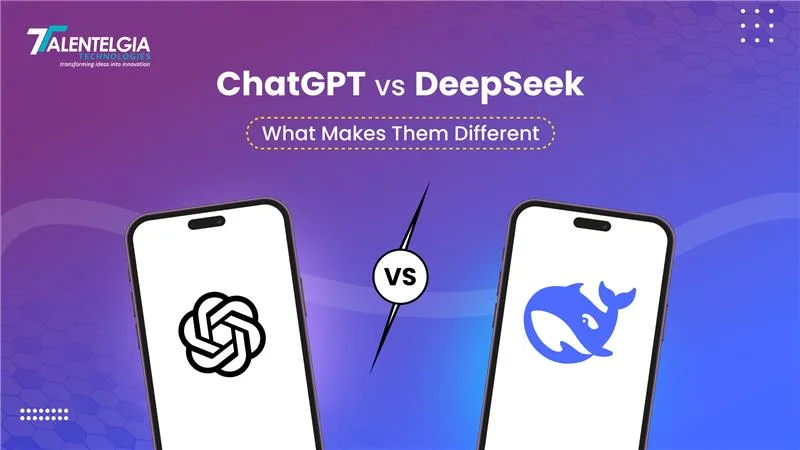
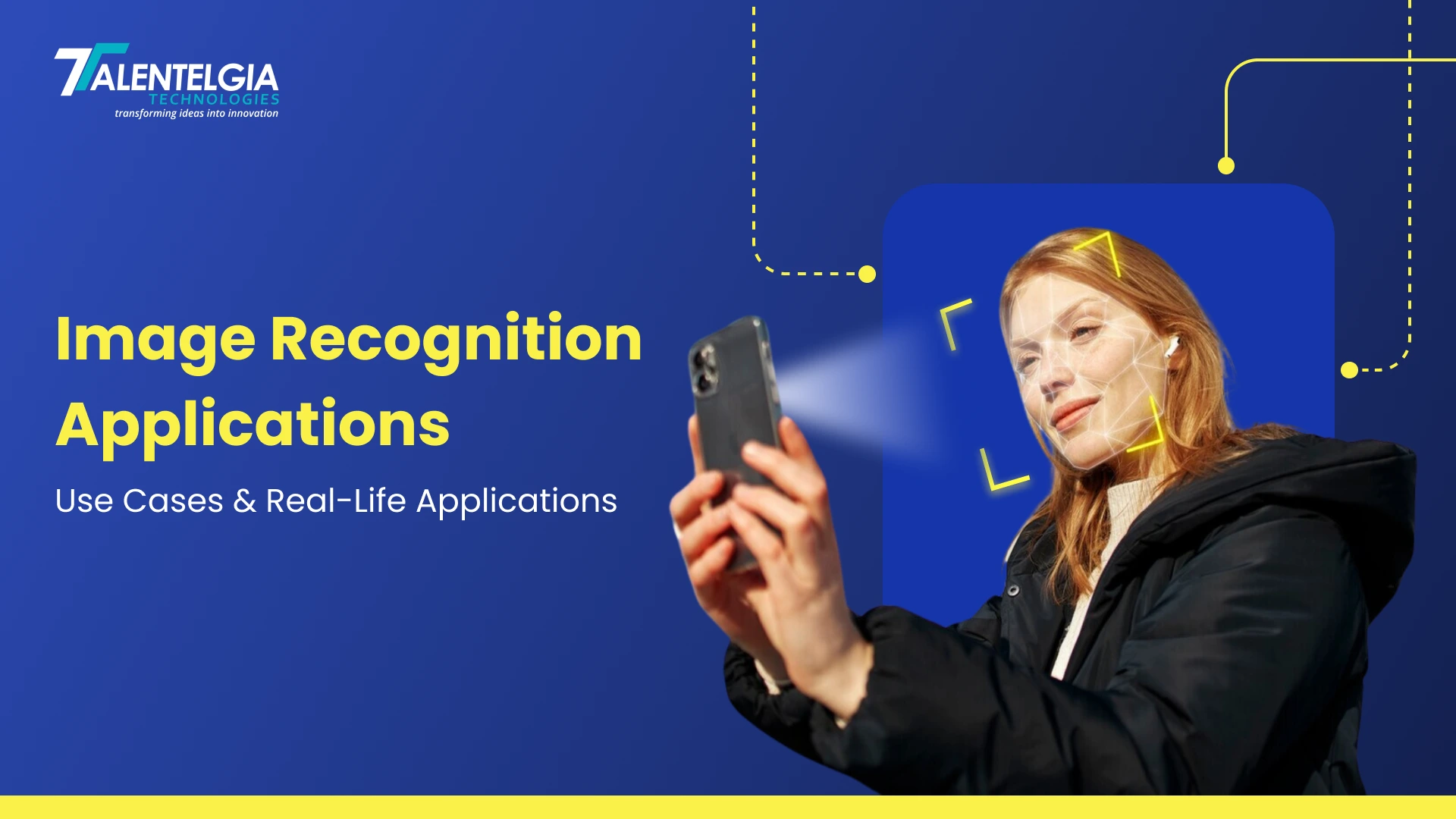











 Write us on:
Write us on:  Business queries:
Business queries:  HR:
HR: 




